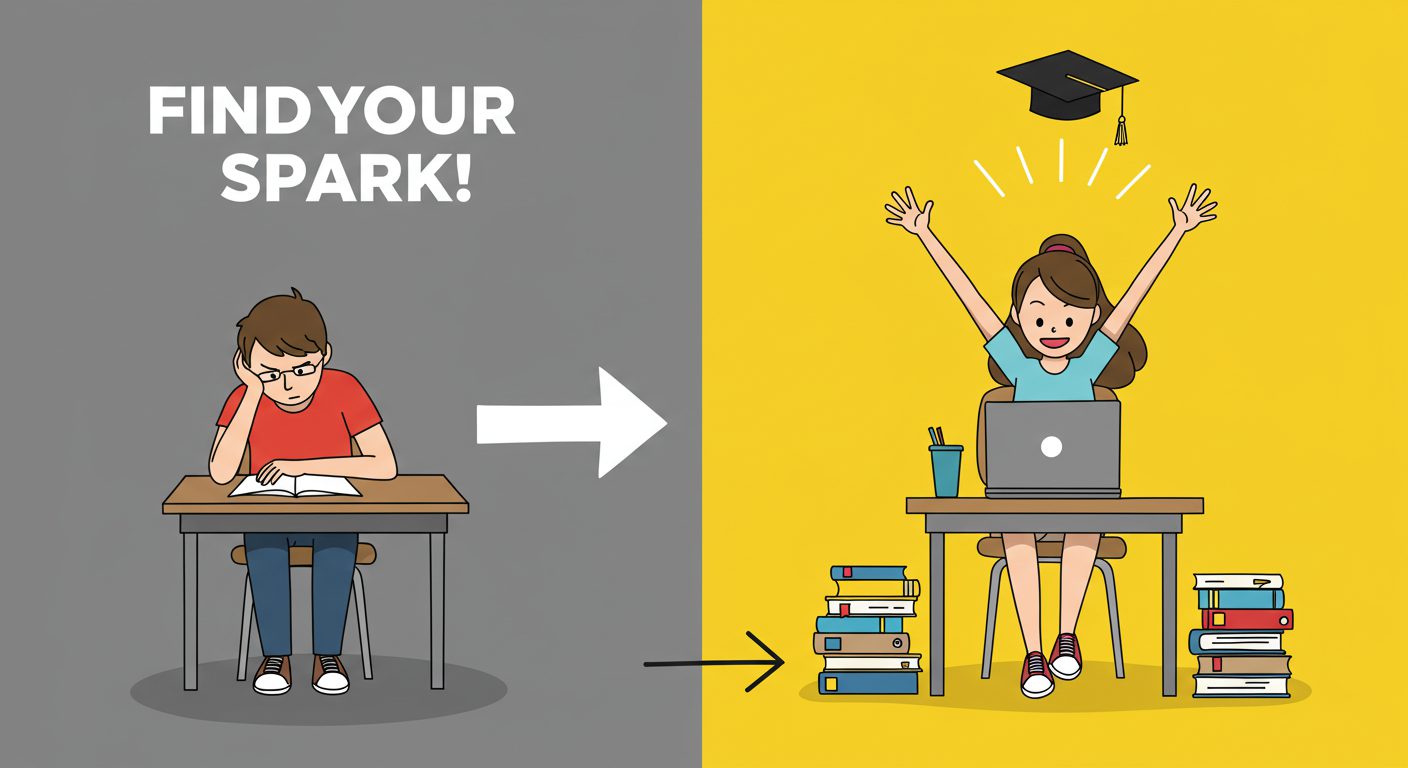Each day brings me one step closer to a life devoid of the panic-inducing waiting periods, and generally pressing refresh on the school portal isn’t part of that vision. My best friend, slumped next to me, waiting for his semester essay results had remarkably different motives. Unlike him, I scribbled my essay the night prior, in a frenzy, to try to speed. Lo and behold, the results are astonishing. I manage to retrieve an A whilst my friend drags a C by default. Whew! But then again, I feel mortified with remorse. What is the skeleton excuse I am on repeat with every time why do I function like this—scattering into a flurry of adrenaline laden tasks?
I wonder if you could sympathize when I say I am constantly at fists with myself trying to follow a timetable, and simply operating like a deadline clock is a less controversial way of saying it shows up my workload? This is a struggle I grappled with for many years. Spoiler alert: I am at ease now. Appreciating my brink of chaos and passionate motives has multifaceted benefits to how I approach studying, creating, and living. Mark this in context dudes, in such times shall I showcase how stopping force induced parameters on consistency, trusting motivation, has led me into discovering a rather pleasant way of addressing work. All the hands up if offbeat approaches are calling you when it comes to readying tasks.
The Habit Framework Falls Short to Reality
For some baffling reasons, noticing the staggering absence of boundaries was hard for me to perceive in the limitless approaches and theories touted to achieve success. Everyone appears to adore the common narrative that an approach-oriented outlook befits all individuals, deal of focus within calendars presented as gold standards to positivity, obedience, and automation riddled achievement. However, I felt like I was dragging myself through mud whenever I tried studying. I would set up study sessions and then find myself steam coming out of my ears trying to focus on my notes. On the other hand, the night prior to a deadline, I would enter into a state of hyper-focus where I would produce work that I would consider-_amazing_ work. Does this sound like something you’re acquainted with? That made me realize that for some people, like myself, his or her passions come in bursts. Trying to make us consistent makes us lose our energy, and in this instance, mundane routines. To further illustrate my case, once I began embracing my unique energy instead of trying to fit into a box of ‘what society expects me to be,’ I began feeling empowered. I don’t always need to exhibit self-control; instead need to prioritize my most productive windows of time-and focus.
The change improved not only my enjoyment at work, but also my effectiveness. With everything that I do as a medical student and YouTuber, balancing everything is quite the challenge, but “riding the wave” makes things much easier than adhering to strict systems
Have you ever felt guilty for not adhering to a schedule? If so, it’s time to give yourself the freedom to try new things. What if the disorder is your superpower? Think about it.
Distinct Forms of Work
Every form of work is unique and should be approached in a different manner. In my case, I have divided tasks into two broad categories: “real work” and “arbitrary work.” As the name suggests, real work is an activity that has a fixed deadline controlled by someone else. A good example of this would be an exam that takes place on a specific date, team meetings or a project due that need to be submitted by the next day. The arbitrary work, by its name, is work created by the individual which is more flexible in nature. Most of my student I life revolves around arbitrary work and that is where I have discovered the most freedom.
Parasocial relationships could explain the unusual enthusiasm some fans display for certain activities surrounding the celebrities, TV shows, or video games they are engaged with. There are many explanations for these phenomena and to understand them will be useful for future marketers. Treating these hard and arbitrary works separately has helped me personally. For real work, como-ever I am, I always push through. But for arbitrary work, I’ve stopped forcing myself to a calendar. I believe there are real differences in motivation. Consider the example of uninspiring studying: most people would just slow down and would have to distract themselves, it’s not uncommon to repeat a single meaningless sentence five times. Excited on the other hand means changing what set it up so that he can walk through many opened questions. Recognizing “arbitrary” in your life means, and allows for the designation of time to act. When in the zone, have you noticed how much better your performance is?
Fully expect you to comment stating how irrational it sounds to not working unless I feel like it, but that’s not my problem, insensible assignments are. Why work when I can’t feel like doing it on arbitrary tasks. Trust me, I can relate. But while unmotivated trying prove your concept. Galactic combinations, analogy I stick with in this case, a phrase for every work that doesn’t need. Instead of sculpting something useful you need softest chiseling on absolutely and for hours without tangible results, imagine instead about dull wood and chipping away slowly in imaginary world for tasks filled with little strokes, it all starts to make sense. What those arms around a concept do best is allow sievings sculpting untouched and bare. Getting there only after three, for some patients, bleached shores still gets closer to arriving. I complete the same tasks in under half the time, with superior outcomes and a smile, for my personal case. As an example, I can spend hours editing a YouTube video I am excited about, completely lost in the flow. When I am not excited about the task at hand, every single click feels like a mundane activity.

The secret is to have faith that motivation will manifest itself. I used to struggle with the thought that a desire to study would never come, but learned that my affection towards a task oscillates. If I am not in the mood to work on something today, I just wait until inspiration strikes, whether that’s tomorrow or a week from now. This is why I consider myself more productive because I can choose when to work and slowly put myself in a position to work as my best self. Also, it has made work enjoyable. This is useful for me as a busy student and creator. The next time you find yourself dreading a certain task, the question you should ask yourself is: What if I don’t touch it until I’m excited about it? If so, then go ahead and try it, because it almost feels impossible how much you can accomplish.
Rachelle’s Motivation Tools
And what makes me internally inspired? Personally, I know how to trigger my motivation in what I consider ‘nonessential’ ways. Over the years, I’ve developed four strategies. First, I center attention on skill acquisition rather than the end result. Instead of fixating on the grade, I consider how an activity, like writing an essay, helps me improve as an arguable or communicator. This internal shift makes the work seem valuable. It helps me in my development, unlike in a set-and-forget box. Second, I try to be the benefit of the task. I try to answer, “What’s in it for me?” What’s interesting in anatomy might be how studying it helps me understand my body better. I put in my time, but in return, the task too must give something back.
Third, I approach from the bottom rung. When it comes to something overwhelming, such as video editing, I acquire just enough to get started—in this example, three basic rules—to be able to “play” and figure things out. This ensures that starting is always fun, artistic, and not stressful. Lastly, I deal with feelings getting in the way. If I am procrastinating some task, I ask myself: why? Am I afraid of failing? Insecure? Usually by identifying these emotions, I am able to in some way, calm them down and move on. The ways have been transformative for me, enabling me to manage a YouTube channel and excel in school, all without burning out. Which one resonates with you? Give it a go for a task you’ve been procrastinating on.
Sharpening the Axe is Work
Here is the largest shift in thinking: Allocating my time in boosting my motivation is not procrastination, it is actually productive work and helps me complete the task at hand. There is a phrase: Give me five hours to chop down a tree and I’ll spend four sharpening the axe. For me, sharpening the axe translates to getting myself interested relating to the task at hand. To achieve this, I may watch an inspiring video about it, think deeply about what matters in that specific project, or even change its scope to something that aligns more with my interests and passions. Regardless if it takes five minutes or five days, this is time well spent. I also seem to always manage to accomplish the original objective much faster, in a more creative way, and in a much better mood.
This method has changed how I performed my output. Because I only work when I’m motivated, I’m able to accomplish more with significantly less effort, and any task I do is completed to a far greater standard. For instance, a day’s worth of video editing in a semi-drained state has transformed into a one-day edit during a highly motivated state. My current status allows me to transform as a medical student, so I capture a lot more information during my study sessions, which are shorter and more concentrated. If “diving into motivation” makes you feel like you’re wasting time, then think about this differently: You are making an investment in yourself. For what task could you “sharpen your axe” for today?
Key Takeaways
- Habits aren’t everything: Embracing my chaotic energy has made me more effective than forcing consistency ever did.
- Know your work types: I handle real work with discipline but give arbitrary work the freedom to wait for motivation.
- Motivation boosts results: Working when inspired makes me faster, happier, and more productive than grinding through boredom.
- Tools spark passion: Focusing on skills, making tasks meaningful, starting small, and addressing emotions help me get excited about work.
- Motivation is work: Time spent getting inspired isn’t procrastination—it’s an investment in better performance and joy.
Conclusion
Embracing my chaotic, motivation-driven work style hasn’t been a one-size-fits-all fix, and that’s okay. Not everyone thrives on schedules, just like not everyone shines under pressure. What matters is finding what works for you. For me, leaning into my passion, waiting for the right moment, and sharpening my motivation has turned work from a slog into a source of joy and creativity. It’s why I can balance medical school, a YouTube channel, and a full life without losing my spark. I hope these ideas inspire you to experiment with your own approach. Maybe try waiting for that burst of excitement before tackling a project or use one of my motivation tools to light a fire. Whatever you do, trust that your unique energy is a strength. So, what’s one task you’ll approach differently today? Go find your spark—you’ve got this.
